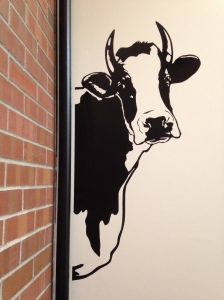Encounters professors make much of writing a paper whose thesis has depth and invites argument, a thesis that does analytical work and doesn’t just summarize the text. But what do these things mean? What kind of theses are your professors really looking for?
It’s useful to think of theses in terms of two traits: obviousness and defensibility. The more obvious the claim a thesis makes, the less time a reader has to think about a text to reach it. The most obvious claims are purely descriptive: Cathy wears blue pants, because the text says so. Still obvious: Cathy likes the color blue, because she is found wearing blue pants in every scene in the book. Less obvious (assuming this isn’t explicitly stated in the book): Cathy tends to wear blue pants because of her deceased mother’s affinity for the sea.
Another way to think of obviousness is as a measure of the amount of skepticism, disagreement, or excitement a thesis invites. Non-obvious claims make you raise your eyebrows at a paper, get you angry with the author if her argument runs counter to the way you have understood things, or make you grin uncontrollably if she has positively expanded the way you look at the world. These are the claims you want to be making.
Defensibility, on the other hand, is a measure of how easily your thesis can be argued against. Often, you might not realize how defensible your thesis is until you’re a significant way through your paper. When you realize that you can’t find any passages that support your interpretation of a character, or that there are as many passages for your interpretation as against, you’re discovering that your thesis isn’t very defensible. Note that a thesis may be defensible but not actually well-defended. This is not a fault of the thesis, but of the paper. A paper’s job is to defend a thesis; a defensible thesis allows a paper to do its job.
Unfortunately, the relationship between obviousness and defensibility is typically linear: the less obvious the thesis, the less defensible it is. It is possible, however, to write a thesis that is both non-obvious and highly defensible. A thesis like this will make you want to want to argue against it, but it will not be easy to actually do so. These are the theses that your professors are looking for, the ones that will stretch your mind and your analytical abilities, the ones that will get you into grad school or your coveted position at the Sierra Club. That being said, there is no formula for such a thesis. They are generally reached only after thinking hard about a text, freewriting about it, perhaps writing an entire paper and then starting over. You probably won’t make a thesis like this the night before a paper is due. But if you’re willing to put in the work, they will come. And, of course, if you’re having trouble you can always come to the Writing Center or your professor’s office hours. I can’t speak for your professor, but we are always happy to help!
Good luck on your pursuit of defensible, non-obvious theses!
